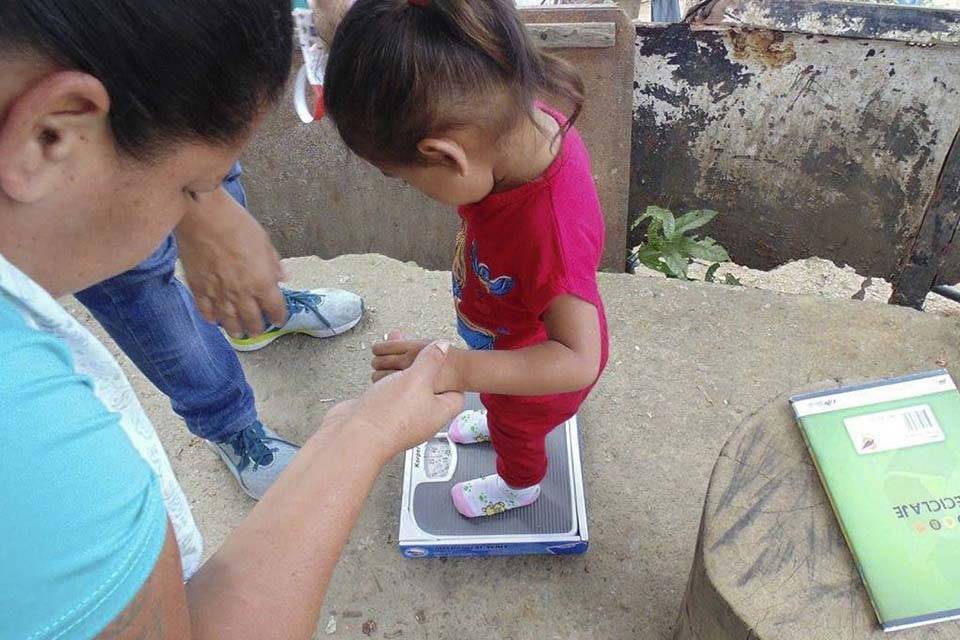OCHA implemented a mechanism for the care of children under five years of age with acute malnutrition or micronutrient deficiency, as well as pregnant or lactating women
The United Nations Office for the Coordination of Humanitarian Affairs (OCHA) publicthis Monday, June 13, its latest update on the humanitarian panorama in the country, where the increase – between February and April 2o22 – of children under five diagnosed with acute malnutrition and micronutrient deficiency stands out.
The first two months of 2022, OCHA identified and cared for 1,179 boys and girls children under five with acute malnutrition. For April, the number of people treated for these reasons rose to 3,200.
In addition, 31,000 children under five years of age and 11,800 pregnant and lactating women were supplemented with fortified foods and micronutrients.
The screening (weight and height measurements) carried out throughout the country showed that acute malnutrition was 10% in some localities of Barinas, Delta Amacuro and Táchira. “This includes some complicated cases of severe acute malnutrition that required inpatient care.”
For this reason, the UN agency implemented a mechanism for the care of children under five years of age, as well as pregnant or lactating women. “This initiative aims to standardize the diagnostic criteria for acute malnutrition and reference and counter-reference for admission to nutrition programs in the country.”
OCHA also hopes to obtain a specific map of health and community centers for outpatient and hospital care for cases of malnutrition with medical complications.
Another issue highlighted by the agency, regarding the rainy season, is the possible increase in nutritional needs and risks due to the interruption of the availability and access to safe water, especially in the case of infants. This has already been identified in Zulia and Andean states.
“The unsolicited donation” of supplements to breast milk “can not only undermine the practice of breastfeeding, but also expose infants and children to diarrheal and infectious conditions due to the consumption of untreated water at the time of feeding. preparation,” the office said in its report.
Throughout the country, poor availability, access to nutritional care supplies and equipment persists, according to OCHA, “which affects the implementation and sustainability of nutrition programs.” Difficulties also remain in the process of importing, transporting and storing nutritional supplies.
“This situation slows down and creates disruptions in the continuity of care and also affects the referral system for malnutrition cases to health centers and hospitals, since not all prioritized health centers have a permanent supply of supplies such as RUTF and formulas. therapeutic F75 and F100 for the care of cases of acute malnutrition, “said the agency.
Until April 30, the humanitarian response of the United Nations system reached 942,000 people with some type of assistance in all the states of Venezuela. The World Food Program is expanding its coverage delivery of school meals to the states of Anzoátegui, Monagas, Delta Amacuro and Sucre between May and June.
Post Views:
fifteen

















